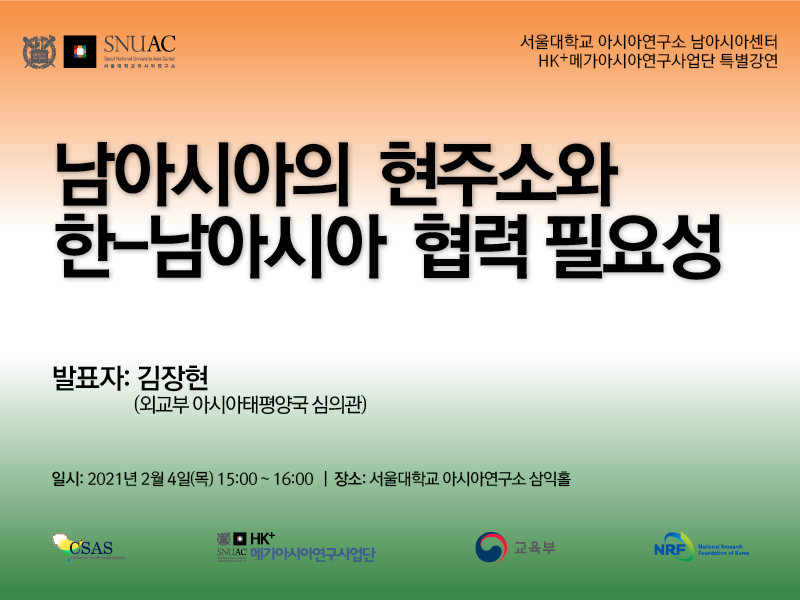Speaker: Jang Hyun Kim (Deputy Director-General for Asian and Pacific Affairs, Ministry of Foreign Affairs)
The geopolitical importance of the South Asian region, which consists of eight countries including India, Pakistan, Afganistan, and Bhutan, is currently increasing as major countries such as the U.S., China and Japan are expanding strategic entry and intensifying competition. Thus the necessity for Korea to seek actual cooperation with major countries in the South Asian region and organizations in order to widen our economic and diplomatic movement. Especially through deepening relations with South Asian countries and partners, we can not only enlarge the extension of New Southern Policy and place ourselves firmly as a middle-range power in the region but also earn actual profits of increasing trade and investments and ensuring maritime security and safety. Also, cooperating in areas of sustainable development such as climate change, pandemics, amelioration of poverty, and energy offers high potentials for mutually reciprocal cooperation achievements in non-traditional security. This lecture will introduce the current political, economic and social states of major South Asian countries and their multilateral cooperation in terms of the South Asian Association for Regional Cooperation (SAARC), and discuss how far South Asia’s bilateral or multilateral diplomacy with Korea has progressed. Therefore we will understand the necessity of cooperating with South Asian-Pacific countries and partners and further think about the future direction of Korea-South Asia relations.
Though the lecture is on topics related to South Asia, the Bureau for Asian and Pacific Affairs at the Ministry of Foreign Affairs deals with Northeast Asia and Pacific islands, so that diverse issues in Korean diplomacy will be discussed.


